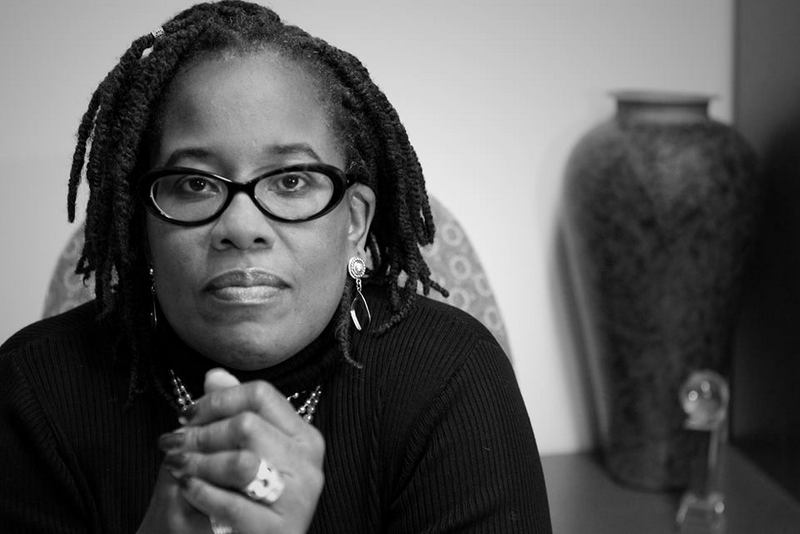[ad_1]
By Karsonya Whitehead
As a Black woman and as a mother in America, every breath that I take is an open act of revolution and rebellion. It is a conscious decision to step into, rather than away from, the light. It requires me to stand and not be moved, to exist in a space between what is possible and what might never be. I make decisions at every turn, trying to live as close as I can to the realm of the possible. I navigate through the grocery store, make my way through the carpool line, and walk confidently across campus, consciously fighting both the White gaze and the imposter syndrome.
I am very aware of the “ghost skins,” White supremacists who refrain from openly displaying their beliefs in an attempt to blend into society and further a racist agenda. I know that they are everywhere and live very comfortable at the edges of my reality. There are moments when I must remind myself that I am choosing to be a public intellectual and to openly wrestle with some of the more profound questions around race, identity, and equity that I think we, as a society, need to answer. I am choosing to speak for the unforgotten, to take on the pain, to hear their stories, and to turn them, like a mirror, back on onto the world. I want people to be uncomfortable and not be able to sleep at night. The ghost skins get publicly angry at the injustice while privately rooting and fighting for it to continue. Inequity, as they are well aware, is one of the bananas that clog the tailpipe of racial justice. These are the same spaces that my great-grandmother would have shied away from.

Growing up, I spent every summer in South Carolina, and I learned, from watching my great-grandmother, how to experience moments of incredible joy within a system that seems hellbent on destroying the tiny pieces that hold you together. She grew up in Olar, South Carolina, a small town with a handful of dusty roads; a plethora of unfulfilled promises; and, two of everything else: two schools, one Black, the other White; two churches, one Black, the other White; two doctors, two cemeteries, two corner stores. Even though the town tried to remain legally separated, it was so small that segregation was a conscious and sometimes inconvenient choice. It was a place where people’s lives and dreams bumped into one another.
In 1963, when my great-grandmother was already into the middle of her life, Dr. King said that the most segregated hour of Christian America was 11 a.m. on Sunday. As a scholar of history, I understood this because I could not imagine that the same White folks who would go out of the way to ignore and degrade Black folks would be able to put that hatred aside to worship and pray together. How do you go from lynching Black bodies to grabbing hands and praying with them and for them? For Black women and mothers, how could they worship with hands stained with the blood of their children? How could Black men and fathers kneel, side by side, with White men who were actively trying to break their spirit?
When I shared Dr. King’s words with my great-grandmother (I had just spent a semester studying his work), she vehemently disagreed. She was a small woman, with smooth brown skin, long white hair, and blue eyes. She had cataracts and glaucoma and had been blind as long as I had known her. Whenever we walked, she would place her hand through my arm, and every once in awhile, she would tell me to step lightly. Her father was a Tsalagi Indian who had been shot dead by the KKK at their front door for trying to organize the Black community to challenge voter registration. That was the early 1920s, she would explain, when the White man would smile at you when you shopped at his store on Friday, ride through the town and terrorize you on Saturday, and then lead the worship service in his church on Sunday. She said that that hour was the most spiritually integrated because, “We were all praying to the same God, and he didn’t see color. They thought that he did, but I knew that he didn’t. They showed up and smiled in my face and pretended that they spoke for him and that they were concerned for my soul. They didn’t speak for him, they spoke to him, just like I did.” She would always raise her voice and lift her chin whenever she talked about the KKK and her father. It was, perhaps, a small act of defiance, a way of not folding herself into the quiet, an act, I would say, of both revolution and rebellion.
Karsonya Wise Whitehead ([email protected]; Twitter: @kayewhitehead) is the #blackmommyactivist and an associate professor of communication and African and African American studies at Loyola University Maryland. She is the host of “Today With Dr. Kaye” on WEAA 88.9 FM and the author of the forthcoming “i speak for the unforgotten: dispatches from baltimore.” She was recently selected for the 2019 Essence “Woke 100 List.” She lives in Baltimore City with her husband and their two sons.
The opinions on this page are those of the writers and not necessarily those of the AFRO.
Send letters to The Afro-American • 1531 S. Edgewood St. Baltimore, MD 21227 or fax to 1-877-570-9297 or e-mail to [email protected]
[ad_2]
Source link
